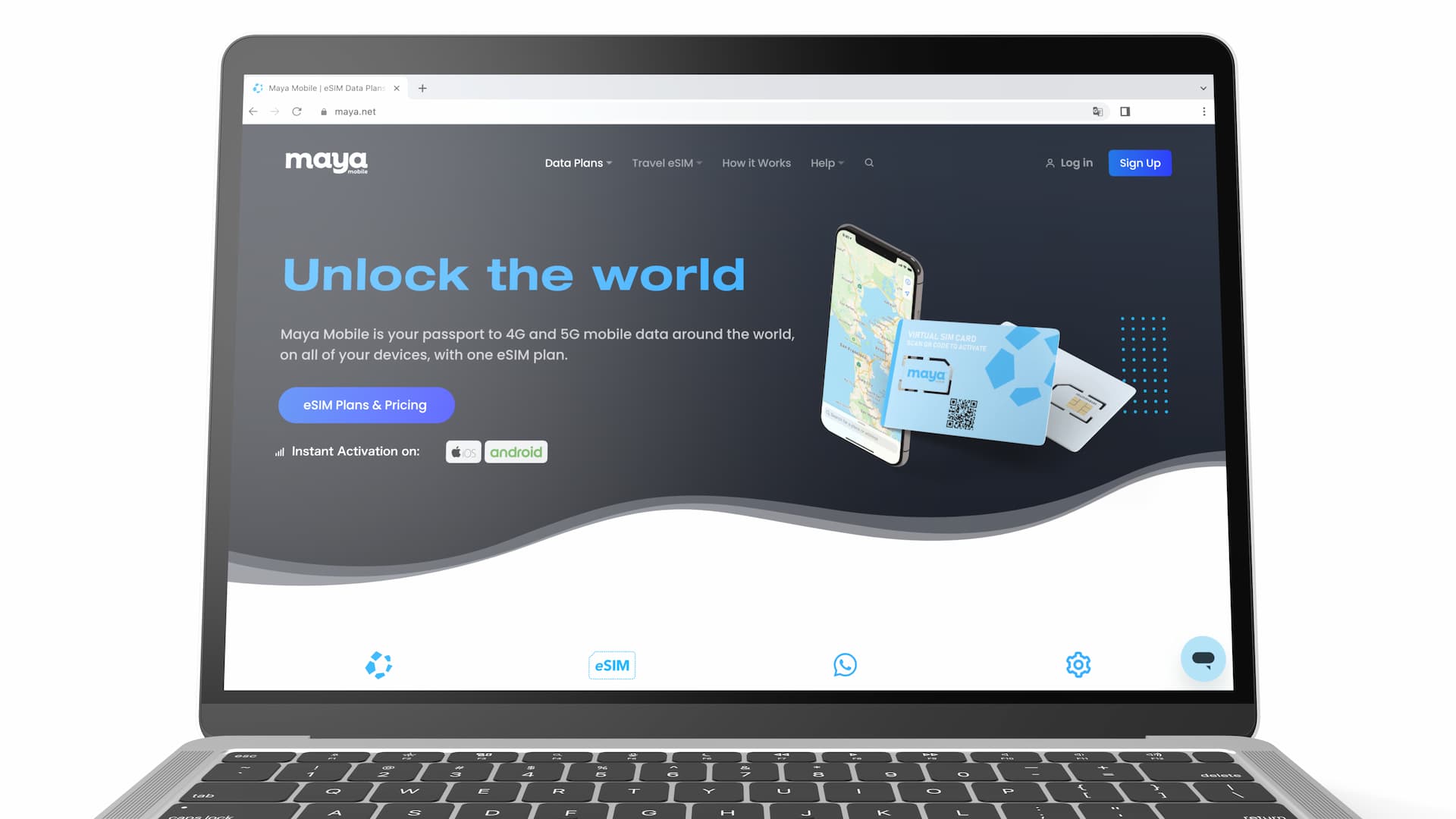Maya Mobile est votre passeport pour les données mobiles 4G et 5G dans le monde entier, sur tous vos appareils, avec un seul forfait eSIM. Tous les plans incluent un point d'accès Wi-Fi et une activation en ligne instantanée sur les appareils compatibles eSIM.

Maya Mobile est votre passeport pour les données mobiles 4G et 5G dans le monde entier, sur tous vos appareils, avec un seul forfait eSIM. Tous les plans incluent un point d'accès Wi-Fi et une activation en ligne instantanée sur les appareils compatibles eSIM.
Code Promo
Forfaits de données eSIM Maya Mobile pour l'Ouganda
Guide d'utilisation
How to buy and activate Maya Mobile eSIM
Questions fréquemment posées
Maya Mobile propose-t-elle une eSIM à données illimitées pour l'Uganda ?
Maya Mobile ne propose pas de forfait eSIM sans limites de données en Ouganda.
Les plans de Maya Mobile en Ouganda offrent une allocation de données fixe de 20 Go.
Ces forfaits sont vendus pour des périodes de validité variées — 1 jour, 5 jours, 10 jours, 15 jours et 30 jours — à des prix allant de $71.99 à $79.99.
Tous permettent le partage de connexion.
Comme l'option illimitée n'est pas disponible, les voyageurs qui ont besoin d'un grand volume de données peuvent préférer l'un des forfaits fixes, qui peut être plus rentable que la recherche d'un forfait illimité qui n'existe pas pour cette destination.
Maya Mobile propose-t-il une eSIM de l'Ouganda avec numéro de téléphone et SMS ?
Maya Mobile ne propose pas de plans eSIM pour l'Ouganda qui incluent un numéro de téléphone local ou la capacité SMS. Les eSIM disponibles en Ouganda chez Maya Mobile sont uniquement de données, ce qui signifie que vous pouvez utiliser internet sans SMS ni ligne téléphonique. Les voyageurs peuvent toujours communiquer via des services VoIP tels que WhatsApp, Telegram ou iMessage sur la connexion internet.
Combien de forfaits de données Maya Mobile propose-t-il pour l'Ouganda ?
Maya Mobile propose 40 forfaits de données mono‑pays pour l’Ouganda, tandis qu’aucun forfait multi‑pays n’est disponible pour le fournisseur dans ce pays. Ces forfaits couvrent une fourchette de prix allant de 3,99 $ à 93,99 $ et offrent des capacités de données entre 1 Go et 20 Go, avec des périodes de validité allant de 1 à 180 jours.
Résumé avec Gen AI. Dernière mise à jour:





